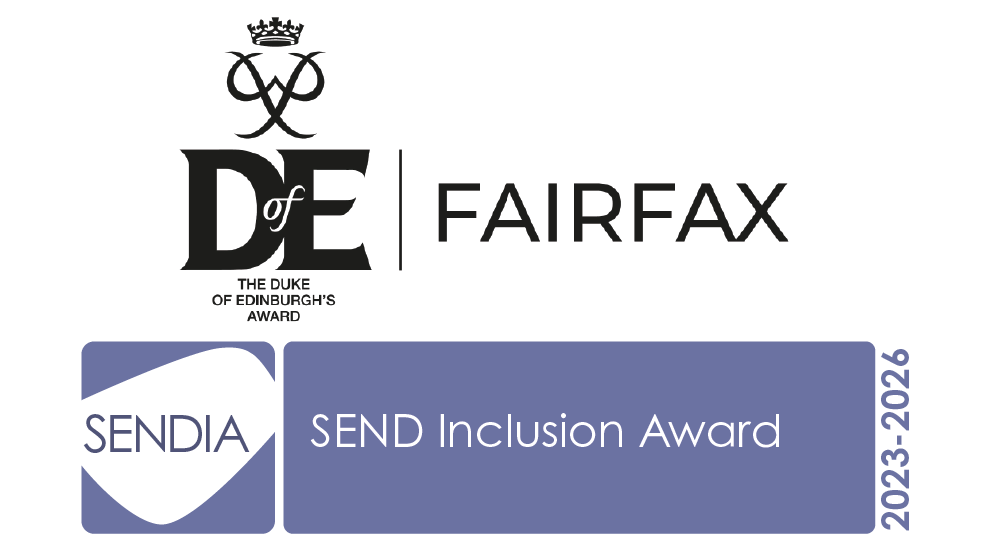Curriculum
Literacy Matters
Welcome to Literacy Matters at Fairfax!
When we talk about literacy at Fairfax, we are referring to reading, writing, gaining vocabulary, and speaking and listening. The following will hopefully give you some guidance on how you can help your child develop their literacy skills at home.
How to help your child with reading
Did you know that 49% of children and young people think that reading is boring or that children who enjoy reading very much are five times more likely to be above average readers?
The ‘National Literacy Trust’ also states that 90% of students who only read books at school are average or below average readers. They go on to say that:
“Children who read for pleasure enjoy better opportunities throughout life because they have gained a richer vocabulary, more knowledge, critical thinking skills and a self-directed learning framework.”
What follows are a series of tips and advice to get even the most reluctant reader to pick up a book and enjoy the experience.
How to encourage your child to read
- Read yourself! Set a good example by reading for fun and talking about the reading you do at work and at home. Let your child know that books and reading are an important part of your life.
- Don’t stop reading to your child. Some children enjoy being read to long after they are fluent readers themselves.
- Visit the library. Take the family to join the local library – it’s free! Make a weekly visit.
- Make a time to read. Set aside a time for family reading – after school or before bedtime.
- Don’t just read books. Encourage your child to read newspapers, TV guides and magazines or listen to audio books.
- Talk about books. Talk to your child and their friends about their book preferences. Talk about the books you like to read.
- Let your child read with younger children. Encourage them to read to younger members of the family.
- Keep in touch with us. Talk with teachers about your child’s reading. They will be able to tell you if your child needs any extra help. Find out which books your child is reading in class and read them as well. You can then discuss them together.
- If English is not your child’s first language, you can buy dual language books. You can talk about books and stories in any language.
How to help with reading
- Spot words inside words. Help them to spot words they know within larger more complicated words.
- Don’t make them try too hard! It doesn’t matter if you have to tell them the word sometimes.
- Let them read their favourites. Don’t worry if they want to read the same books again, or stick to one kind of book. If they get really stuck, ask the librarian or teacher to recommend something they might like.
- Make the story come to life. Encourage your child to read aloud with expression so the story comes to life. This will help them read more fluently.
- Discuss books. Ask your child to tell you about the books they are reading: the type of book, the characters, the plot. Encourage them to have an opinion – Was it a good book? Why?
- Use a dictionary. Buy your child a dictionary and encourage them to use it to check the meanings of new words.
How to help with writing:
Good questions to ask when planning a piece of writing:
- What kind of writing is this? (For example, notes, a report, a description)
- How should it be set out? (For example, for a letter)
- If it is a longer piece of writing – where is your paragraph plan?
- How do you set out paragraphs? (Indent, or more usually in word processing, miss a line)
- When do you start a new paragraph? (Change of subject or in a story: change of time, place or speaker)
- Who is meant to be reading this and how will your language reflect this? (For example, other students, adults, friends, prospective employer)
When your child has finished their piece of writing, they should always ask themselves the following questions:
- Do your sentences make sense?
- Have you put commas in the right place?
- Have you checked that you have a capital letter at the start of each of your sentences?
- At the end of your sentence, do you have a full stop?
- Do you have any names? Have they got a capital letter?
- Have you used apostrophes to show contraction and belonging?
- Check your spelling. If in doubt, look in a dictionary.
- Have you used paragraphs?
Academic Vocabulary
One of the most significant things a student can do to support their progress is learn new vocabulary.
How can a student do this?
- Read texts that they find challenging and identify new words. They might also want to look at the academic word list (link below). Choose a few words that they are unfamiliar with.
- With these new words, become word detectives:
- Find out the definition in a dictionary.
- Find out the story of the word. For example, find out the story behind the word sandwich.
- Break the word into parts and find out the meaning of the root. For example, joy means ‘a feeling of pleasure or happiness’. This helps when exploring the meaning of words such as enjoyable, killjoy, joystick, joyful.
- Find some synonyms of the word. For example, synonyms of joy are delight, pleasure, happiness and glee.




